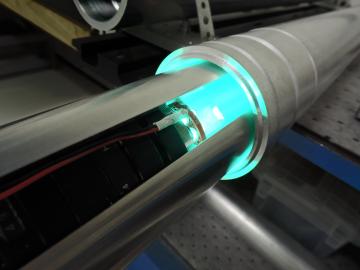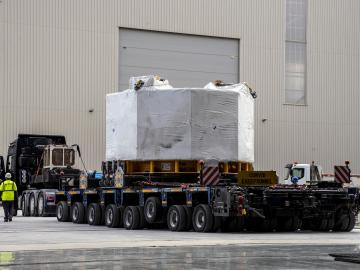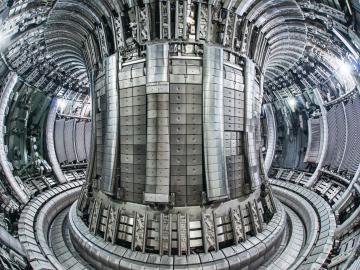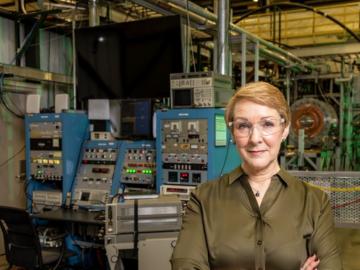Filter News
Area of Research
News Topics
- (-) ITER (4)
- (-) Statistics (1)
- 3-D Printing/Advanced Manufacturing (42)
- Advanced Reactors (15)
- Artificial Intelligence (16)
- Big Data (20)
- Bioenergy (31)
- Biology (37)
- Biomedical (19)
- Biotechnology (6)
- Buildings (26)
- Chemical Sciences (15)
- Clean Water (19)
- Climate Change (34)
- Composites (11)
- Computer Science (51)
- Coronavirus (17)
- Critical Materials (12)
- Cybersecurity (9)
- Decarbonization (21)
- Energy Storage (44)
- Environment (79)
- Exascale Computing (3)
- Frontier (3)
- Fusion (16)
- Grid (27)
- High-Performance Computing (19)
- Hydropower (8)
- Irradiation (2)
- Isotopes (13)
- Machine Learning (14)
- Materials (41)
- Materials Science (43)
- Mathematics (4)
- Mercury (7)
- Microscopy (20)
- Molten Salt (5)
- Nanotechnology (18)
- National Security (18)
- Net Zero (3)
- Neutron Science (35)
- Nuclear Energy (32)
- Partnerships (1)
- Physics (20)
- Polymers (13)
- Quantum Computing (5)
- Quantum Science (12)
- Security (7)
- Simulation (10)
- Space Exploration (10)
- Summit (8)
- Sustainable Energy (55)
- Transportation (47)
Media Contacts

Inspection technology developed by Oak Ridge National Laboratory will help deliver plasma heating to the ITER international fusion facility.

Staff at Oak Ridge National Laboratory organized transport for a powerful component that is critical to the world’s largest experiment, the international ITER project.

Equipment and expertise from Oak Ridge National Laboratory will allow scientists studying fusion energy and technologies to acquire crucial data during landmark fusion experiments in Europe.

Researchers at Oak Ridge National Laboratory have developed a nationwide modeling tool to help infrastructure planners decide where and when to locate electric vehicle charging stations along interstate highways. The goal is to encourage the adoption of EVs for cross-country travel.

From the helm of a one-of-a-kind organization that brings nuclear fusion and fission expertise together to pave the way to expanding carbon-free energy, Kathy McCarthy can trace the first step of her engineering career back to




